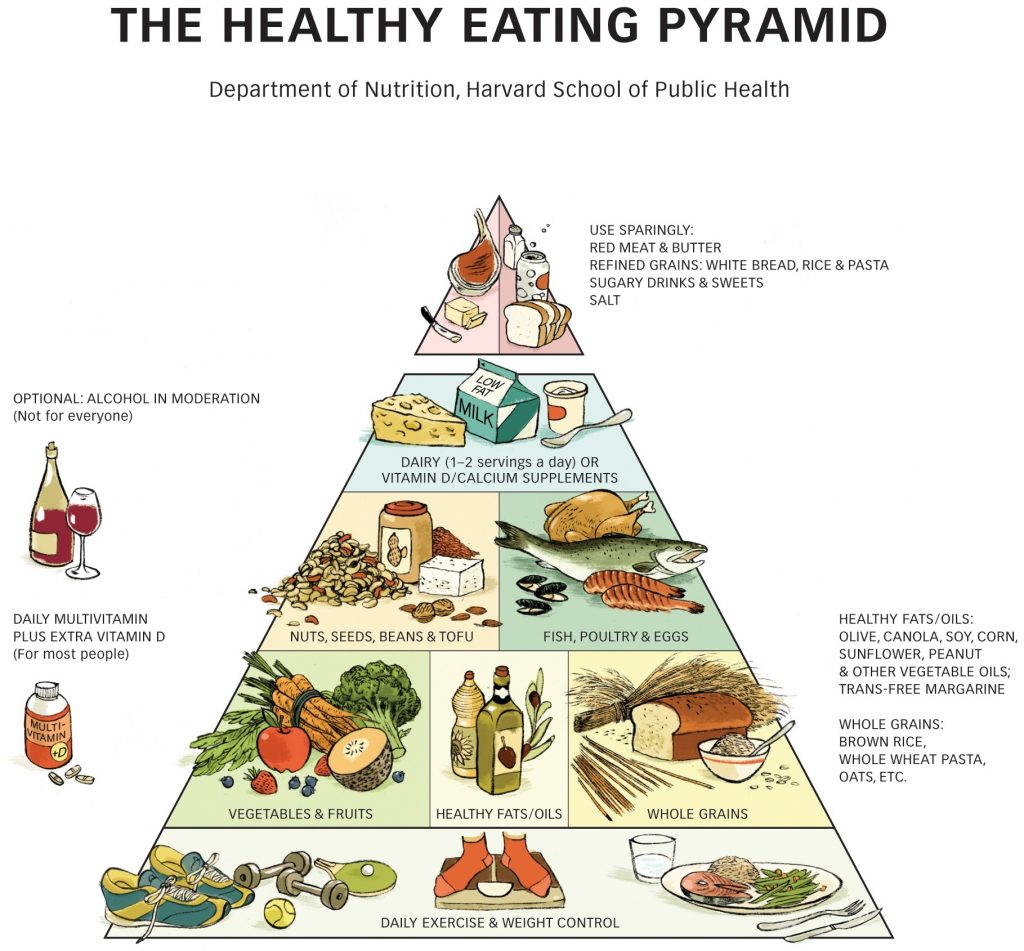By SAJAD AHMAD KHANDAY
A healthy diet helps to protect against malnutrition in all its forms, as well as no communicable diseases (NCDs), including such as diabetes, heart disease, stroke and cancer.
An unhealthy diet and lack of physical activity are leading global risks to health.
Healthy dietary practices should be started right from early in life – For example, breastfeeding fosters healthy growth and improves cognitive development, and may have long term health benefits such as reducing the risk of becoming overweight or obese and developing NCDs later in life.
It has been shown by various researchers that to avoid unhealthy weight gain, total fat should not exceed 30% of total energy intake.
A word of caution the intake of saturated fats should be less than 10% of total energy intake, and intake of trans-fats less than 1% of total energy intake, with a shift in fat consumption away from saturated fats and trans-fats to unsaturated fats

Limiting intake of free sugars to less than 10% of total energy intake is part of a healthy diet. A further reduction to less than 5% of total energy intake is suggested for additional health benefits
Keeping salt intake to less than 5 g per day (equivalent to sodium intake of less than 2 g per day) helps to prevent hypertension, and reduces the risk of heart disease and stroke in the adult population
WHO Member States have agreed to reduce the global population’s intake of salt by 30% by 2025; they have also agreed to halt the rise in diabetes and obesity in adults and adolescents as well as in childhood overweight by 2025
By consuming a healthy diet throughout the life-course we can prevent malnutrition in all its forms and control various non-communicable diseases (NCDs)
The increased production of processed foods, rapid urbanization and changing lifestyles have led to a shift in dietary patterns.
People are now consuming more foods high in energy, fats, free sugars and salt/sodium, and many people do not eat enough fruit, vegetables and other dietary fibre such as whole grains.
What constitutes a healthy diet?
The exact makeup of a diversified, balanced and healthy diet will vary depending on individual characteristics (e.g. age, gender, lifestyle and degree of physical activity), cultural context, locally available foods and dietary customs.
However, the basic principles of what constitutes a healthy diet remain the same.
For adults: A healthy diet includes: Fruit, vegetables, legumes (e.g. lentils and beans), nuts and whole grains (e.g. unprocessed maize, millet, oats, wheat and brown rice).

At least 400 g (i.e. five portions) of fruit and vegetables per day, excluding potatoes, sweet potatoes, cassava and other starchy roots. Less than 10% of total energy intake from free sugars, which is equivalent to 50 g (or about 12 level teaspoons) for a person of healthy body weight consuming about 2000 calories per day, but ideally is less than 5% of total energy intake for additional health benefits
Free sugars are all sugars added to foods or drinks by the manufacturer, cook or consumer, as well as sugars naturally present in honey, syrups, fruit juices and fruit juice concentrates. Less than 30% of total energy intake is from fats.
Unsaturated fats (found in fish, avocado and nuts, and in sunflower, soybean, canola and olive oils) are preferable to saturated fats (found in fatty meat, butter, palm and coconut oil, cream, cheese, ghee and lard) and trans-fats of all kinds, including both industrially-produced trans-fats (found in baked and fried foods, and pre-packaged snacks and foods, such as frozen pizza, pies, cookies, biscuits, wafers, and cooking oils and spreads) and ruminant trans-fats (found in meat and dairy foods from ruminant animals, such as cows, sheep, goats and camels). It is suggested that the intake of saturated fats be reduced to less than 10% of total energy intake and trans-fats to less than 1% of total energy intake To conclude take enough fruit and vegetables . Exercise and never take food in excess. Restrict fats and salt. These steps will help you to live a healthier and happier life and save you from so many diseases.
Courtesy: https://mag.dribrahimmasoodi.com/
Leave a Reply